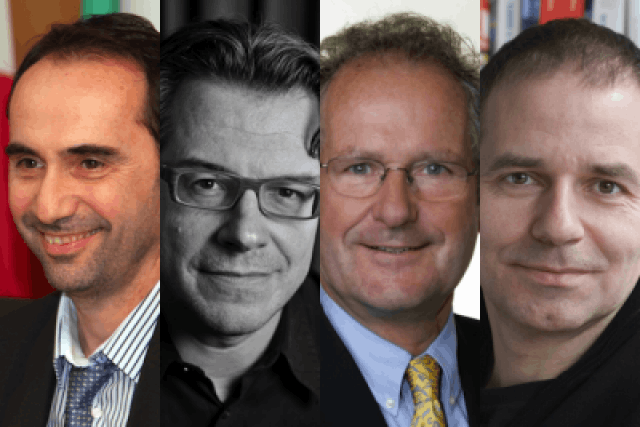Conference Cycle from October 2012 to June 2013: Luxembourg: where we came from; where we are; where lies our possible future?
Norbert Becker, Chairman of the Board of Regents and Dr. Alfred Steinherr, Academic Director of Sacred Heart University invite you to a discussion of Luxembourg’s success and visions for the future at a time of dramatic uncertainties. This sixth conference (out of 9) will cover the topic of: "Champions League: Regional and urban development."
Luxembourg – on borrowed size and flawed urbanization.
Speaker: Markus Hesse, Professor of urban studies, University of Luxembourg
Abstract:
The lecture approaches the urban development trajectory of Luxembourg and, particularly, its capital city Ville de Luxembourg as a rather specific case of urbanisation. Two concepts seem suitable for providing appropriate interpretations: first, William Alonso's notion of 'borrowed size' that points at the international reach and enormous 'hub effect' deployed by city and country, both appearing much bigger than measured by mere population; second, 'flawed' urbanisation (in German: defizitäre Urbanisierung) which was used in urban history to explain the impact of rapid development on cities e.g. caused by industrialisation.
Both ideas will be discussed concerning the significant mismatch between the speed and pressure of recent modernisation on the one hand, and the challenge of adjusting spatial capacities such as housing or circulation on the other hand. The lecture concludes by commenting on the Luxembourgish mode of urban governance that seems to be even more specific compared to many other cases known.
An emerging metropolis?
Speaker: Paul Helminger, Honorary Mayor of Luxembourg City; Doctor of Laws (h.c.), Sacred Heart University
Abstract:
So far most predictions about population and jobs have been proved wrong - on the low side, and sometimes by a lot: the resident population has grown faster than expected, but so also has the migrant labor force. Cities have been growing, but more slowly than the surrounding communes. Generally there is a remarkable permanent mobility, particularly in the Luxembourg City area.
Past studies have shown that in its totality the existing building perimeter could easily accommodate any foreseeable population growth, without having to overly density housing construction. The problem is rather the short term availability of land where it is most needed. Could it be that a kind of speculative protectionism is at work here and if so, what to about it?
Given the dimensions of the country, decentralisation of basic administrative or social infrastructures and services should not be a problem, but in terms of economic development we cannot afford to multiply, let alone split up clusters of activity if we want to achieve critical mass.
Developments in Luxembourg must be seen in - at least - the regional, cross border perspective. Can Luxembourg be the core of a new, transborder, multicultural metropolis? With multiple economic, cultural and social synergies? With common approaches to integration?
Urban, national and regional planning need to go hand in hand.
Luxembourg: The epicenter of the “Grande Région”
Speaker: Claude Gengler, Director, Forum Europa Foundation, Luxembourg
Abstract:
Luxembourg – the City, of course, as well as the country as a whole – has become the “epicenter” of a big transnational area called “Greater Region”, the biggest, oldest, most complex and heterogeneous cross-border region in Europe. Cross-border work, business and shopping can be considered to be the cement holding together this amazing and quite stimulating area. The Greater Region is not only a promising market for an increasing number of firms, it is also an extraordinary cooperation space, with cooperation structures in many fields and at different levels. Unfortunately, cross-border cooperation is not evident at all. It is a 100% voluntary, because there is no central authority able to force neighboring regions belonging to different countries to work together. The aim of this speech is to show why it is better to work with each other than against each other. Believing the speaker, regarding to the specific situation of Luxembourg, this is no more a question of choice, but a question of surviving.
The long-term competitive position of Luxembourg
Speaker: Lionel Fontagné, Professor of economics, Université Paris I, Panthéon Sorbonne
Abstract.
A synthesis of the main features that are and will determine the ranking of Luxembourg in the concert of competing countries.
